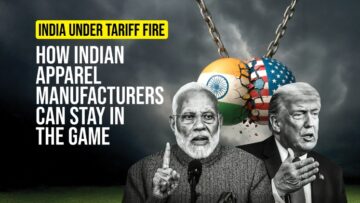The Goods and Services Tax, commonly referred to as GST, was launched after many years of deliberations at the midnight of 1st July 2017 and has since been a subject of intense debate by the business community for various reasons. The reality is that the provision, which was envisaged as a unified and simplified provision of a web of indirect taxes like excise duty, VAT, services tax, etc., that prevailed in the country, has in fact come under severe criticism for being complicated and badly implemented.
The biggest challenge has been to get refunds on time and to understand the constant changes in provisions, which has led to many protests by various industries and especially small businesses. Industry claims that the high handedness of tax officials, especially that of the State GST officials, has had a chilling effect on most small businesses. That is why a large number of VAT-registered dealers have opted out of GST. These MSMEs claim that doing business has become a struggle!
After a lot of hiccups, the GSTN, Goods and Services Tax Network, which monitors the GST system has considerably stabilised now, but throughout all these years, MSMEs have paid dearly for every act of their omission and commission as well as for the fault of the system. The sad reality is that the provisions have put unbridled powers in the hands of officials, which they use with impunity. The basic problem is the grievance redressal system which is weak or non-existent.
Section-132 of GST provisions has in particular been criticised. According to the section, for peaceful implementation of GST, the Commissioner of CGST/SGST has power to arrest a person who he believes has committed an offence and the arrest may be made by any authorised CGST/SGST officer. The industry argues that it is ironic that punishment comes even before the offense is proved!
The weaknesses in the GST system have been acknowledged by the Hon’ble Supreme Court and in a strong statement, the court has slammed GST enforcement by tax authorities saying in strong words that the GST is no longer a citizen-friendly act that it was meant to be. Much to the pleasure of the industry, the court observed that officers must strike out a balance between protecting government revenue and allowing genuine businesses to operate.
Also Read: Upskilling workforce is the right choice in post-pandemic world
The Court in particular lashed out at tax officers for raising huge demands without accountability. “Tax officers raise huge demands from businesses with no accountability, the court observed. If a Rs. 10,000 crore demand is reduced to Rs 1,000 crore by a court, it must reflect in the assessment of the tax officer,” the court added.
There is a unanimous agreement that the provisions and discretionary power given to GST authorities are too harsh and highly business unfriendly negating the spirit of ease of doing business. The general observation is that these provisions treat the business as guilty on the smallest of pretext and action is taken against them without giving them an opportunity to explain the shortcomings noticed.
The Exporter community is a bigger victim of this practice. Exporters allege that without any alert or show cause notice, firms are red flagged as Risky exporter at customs withholding all refunds and duty drawback. All shipments are to be inspected and approved by anti-evasion team. It is a big harassment and takes 6-8 months and even more to get the NOC from the respective GST region to remove the risky exporter tag.
Recently, Clause No. 123 of the Finance Act, 2021 had envisaged an amendment regarding Section 16 of the Integrated Goods and Service Tax (IGST) Act and is to come into force on such date as notified by the Central Government. Under the amendment, an exporter can export goods under LUT or on PAID IGST option as per his choice as per the existing provisions of Section-16 of IGST. The refunds will also continue as per relevant rules and procedure. But as of now no notification to this effect has been issued.
The lethargic approach to GST is really hurting the export community and they are very hopeful that with the Apex court openly questioning the unbridled powers of GST officials, some relief may be on the way.







